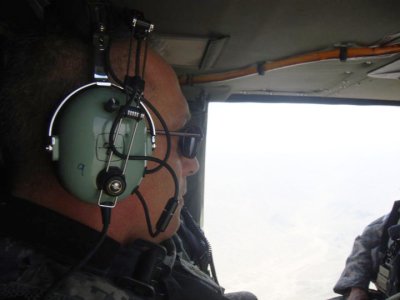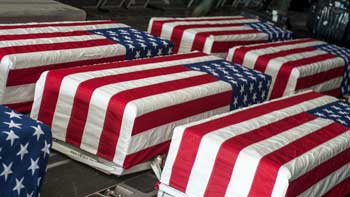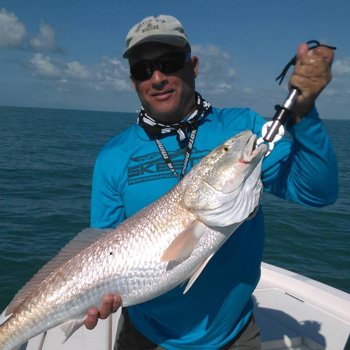I Stare at the Empty Chair Next to Me. He Isn’t Coming. We Still Wait for Him.
I sit staring at the empty chair next to me. We know whose chair it is. He isn’t coming.
His name was Sam. He’d grown up in the country, the child of a military family, and he was obsessed with computers. We affectionately called him “our admin kid,” but he was more than that, smarter than all of us, and wise beyond his years. He was the energy in our ops section. We instantly liked him.
One day, looking for a bit more excitement, he asked if he could go out to a forward operating base. Sam flew off in a helicopter in combat gear and returned in a black rubber bag.
Afterwards, I flew out to the FOB. A noncommissioned officer brought me to a scrap yard where the twisted wreckage of an up-armored Humvee sat on flat tires, the vehicle destroyed by an improvised explosive device. There was a hole in the passenger door from an explosively formed penetrator bomb big enough to put your fist through, and I saw blood inside the truck.

Tim Ramsey is a retired Army logistics officer and combat veteran. Photo courtesy of the author.
Sam had gone off base on a patrol, and the enemy found them. The noncommissioned officer said Sam had been behind that hole in the door. I didn’t open it; I just stared at it.
Now I stare at his chair. No one sits in it. No one dares. Twelve men in a room, now 11.
When someone else comes in, the others watch them out of the corners of their eyes. We tell them not to sit there. They get no explanation. They just comply. The guys seem ready to pounce on anyone who dares.
We imagine what it would be like if Sam walked in. We know he won’t. We stood out in the rain and watched as his flag-draped coffin was loaded on an airplane.
Sam’s big personality once filled the room. Now the room feels as empty as his chair.
Despite what we know to be true, we still wait for him
* * *
In an office at the U.S. Embassy in Abu Dhabi, there’s a chair no one sits in. There is nothing wrong with it, except we remember who it belonged to.
Jeff was our sergeant major. Jeff was our superhero, a Special Forces soldier in his mid-40s who looked a lot younger. He’d seen a lot of combat. Whatever crazy Special Operations combat training school or program we asked about, it seemed he’d done it.

Transfer cases, containing what may be the remains of U.S. service members classified as missing in action from WWII, line the hull of a U.S. Air Force C-17 Globemaster III at Joint Base Pearl Harbor-Hickam, Hawaii, in March 2017. Photo by Staff Sgt. Matthew J. Bruch, courtesy of the U.S. Air Force.
He looked like Clark Kent and was fit enough to be a fashion model. He used words like “plyometrics” in his daily lexicon before any of us even knew what the word meant. One day he said he was going for a “little run,” which turned out to be 15 miles. He was versatile and valuable. He could go from advising commanders to working with their senior enlisted, to training the UAE on airborne operations (usually jumping with them into the desert), to talking about his 2-year-old with equal ease. Jeff had every right to be full of himself, but he wasn’t. He was awesome.
He died in a motorcycle crash after he was rotated home in the U.S. He left behind a wife and two children.
* * *
Sam’s chair sat empty for three weeks. Then the colonel in charge of the section removed it in the middle of the night so none of us knew where it went. When Sam’s replacement came in, a chair was wheeled in from another room. Life went on.
We left Jeff’s chair where it was, as a reminder of him.
I’m not sure when we started assigning such emotional value to furniture or other objects, but I wish we didn’t.
Award-Winning Journalism in Your Inbox
My friend Rob was stationed in Korea when his father died. When he went home for the funeral, he made the mistake of sitting in his father’s chair in the living room. To him, it was feeling a closeness to his dad. To his mother, it was her son disrespectfully trying to replace him. Her reaction made the bomb blast at Bikini Atoll look like a bubble bursting in a bathtub.
My father died eight years ago, and my mother still can’t part with his piano, even though it’s an electronic fake baby grand. He took piano lessons for years but played the same three songs my whole life. I can only remember two of them: “Has Anybody Seen My Gal,” first performed in 1925, and “As Time Goes By,” written by Herman Hupfield in 1931.

Tim Ramsey doing what he loves these days—fishing. Photo courtesy of the author.
Dad was old even when he was young. It was part of his charm. He listened to The Four Freshmen in college while his classmates listened to the Beach Boys. He made money back then as a lounge singer and dance instructor before rolling his convertible during a fraternity beer run, which made him a legend.
Aunt Rose Marie, my godmother, was an art teacher, sculptor, and devout Catholic who went to church every day I was in a combat zone. She died a few years ago. Now we’re surrounded by sculptures only she understood. To me, they all look like pieces of a coral reef. One is called “Soft Breeze,” but it’s a stone that weighs about 10 pounds, purple and curvy, and certainly not soft if thrown at someone. I have a picture of her smiling, covered in dust, wearing a scarf over her jet-black hair, and holding a power tool. I’d rather have my aunt Rose Marie back.
Our Journalism Depends on Your Support
My uncle Eric, who was married to Aunt Rose, was a big Swede with a larger-than-life personality. He was a sportsman, hunter, and gun collector. I have guns from him I will never shoot, fly rods I will never cast, and hunting clothes I will never wear.
I know letting go of their things won’t take away my memories.
But I keep them anyway.
This War Horse reflection was written by Tim Ramsey, edited by Kristin Davis, fact-checked by Jess Rohan, and copy-edited by Mitchell Hansen-Dewar. Abbie Bennett wrote the headlines.





Comments are closed.